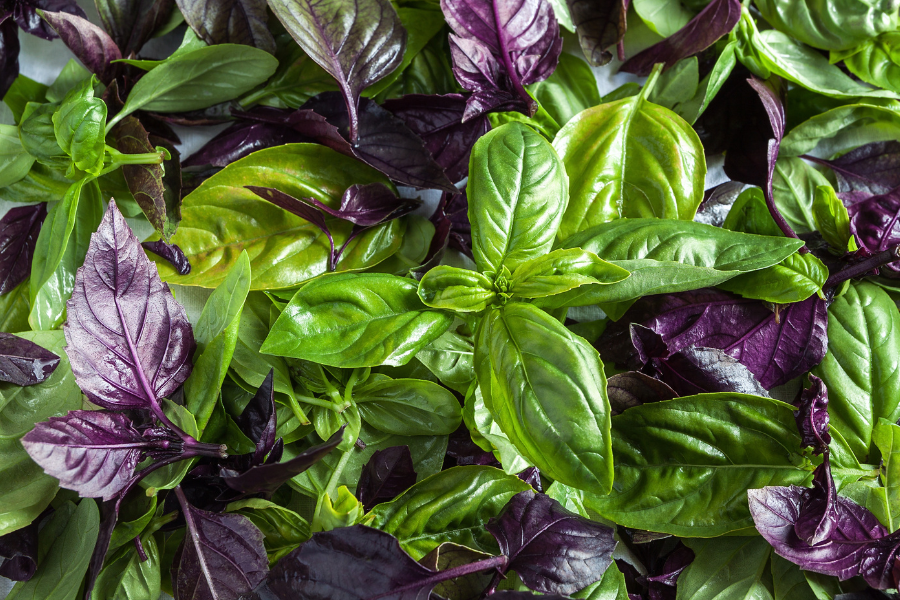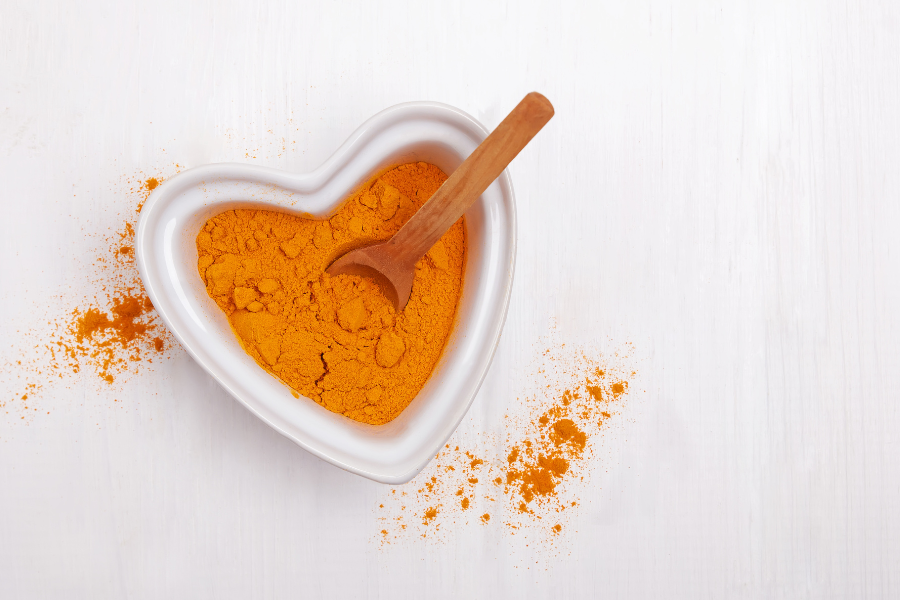Introduction
A common thread among dog parents is the curiosity about what foods (besides dog food) are okay for their pups to eat. And this curiosity is warranted for a couple reasons: 1) a lot of dogs beg their human parents merciless for foods that are not their own, and 2) more dog parents are incorporating whole foods into their dog’s diet – either for health purposes or for variety. But what about herbs, and specifically what about a kitchen staple like basil – can dogs eat basil? Fear not, because we are in the business of demystifying such questions. By the end of this blog, we can’t promise that you will be a wizard in the kitchen like Bobby Flay, but you will know the ins and outs of giving basil to your canine companion.
Key Basil Takeaways
- Safe in Moderation: Basil is safe for most dogs to eat in small amounts.
- Health Benefits: Basil has antioxidant and anti-inflammatory properties, and vitamins that may benefit your dog's health.
- Avoid Large Quantities: Consuming too much basil can cause digestive for your pup.
- Consult Your Veterinarian before introducing basil (or any new food) to your dog.
Origins of Basil
If you had me doing a free association exercise and you asked me what the first thing is that pops into my head when I think of basil, I would quickly respond with “pizza topping!” or “pasta!” or “pesto!” Basil’s sweet, distinctive flavor blends well with many dishes, which is why it’s used in cuisines worldwide (not just Italian cuisine).
What you may not know is that basil originates not from Italy. Nope, it is a tropical plant (whattt!? Mind blown, right?) native to Southeast Asia and Africa.
Basil is a popular herb known for its aromatic leaves and culinary versatility. Native to tropical regions from central Africa to Southeast Asia, it has been adopted into cuisines worldwide. From pesto to pizza toppings, basil’s distinct flavor is a beloved addition to many dishes.
More About Basil and Its Uses
But basil is not just a rockstar in the kitchen; it’s also a bit of a superhero medicinally. Beyond its ability to lure us in by tantalizing our taste buds, basil has been used for thousands of years medicinally, first in Traditional Chinese Medicine and Ayurvedic medicine (a practice native to India based on maintaining balance in the body). Its effectiveness has continued to show merit in our modern society, being used for its anti-inflammatory, antibacterial, and adaptogenic properties. So, whether you’re spicing up your dinner or looking for a holistic health boost, basil has your back.
Is Basil Safe for Dogs to Eat?
Okay, we are finally getting to the meat (or should we say the herb) of the topic here. The short answer is yes, basil in moderation is a-okay for dogs to have. Basil is not a food to be hugely concerned about your dog eating, like chocolate or grapes, which are both toxic foods for dogs. However, like many human foods, serving basil to your pup (if you choose to do so) in small amounts is key, as too much will most likely give them digestive issues.
Can Basil Benefit Dogs in the Same Ways it does for Humans?
So, we have established that basil is a superstar for human health and in the kitchen, but what about for our four-legged, squirrel-chasing sidekicks? Can basil benefit dogs in the same way it does humans? The answer to this is a resounding "heck yes!" (accompanied by a Tiger Woods-like fist pump). Just like for humans, basil’s anti-inflammatory actions work in a dog’s body too! This could potentially help soothe joint pain and relieve arthritic pain (again, potentially, and we are not saying that basil can take the place of medicine or vet visits). And we cannot ignore basil’s antibacterial and antiviral benefits—these also apply to dogs and are perfect for keeping those pesky germs at bay.
Nutritional Benefits of Basil for Dogs
What is in basil, anyway? Even though it may just seem like a small, thin lead, this herb packs a Mike Tyson-like punch nutritionally. Rich in vitamins A, C, and K, along with essential minerals like iron, calcium, and magnesium, these nutrients (especially when working in concert with one another) can boost the immune system and support overall health. Not too shabby for an herb that you put on your pizza, right?
Basil’s Antioxidants
Antioxidants are like little superhero fighters that go around combating free radicals. Basil is rich in antioxidants (like vitamin C, also found in oranges), which can help reduce the body’s inflammation load and even ward off disease.
Anti-Inflammatory Benefits
If your dog deals with inflammatory conditions like arthritis, basil may offer some relief. Basil contains an essential oil called eugenol, which is known for its inflammation-cooling effects. Again, it is definitely no substitute for veterinary care, but sprinkling some basil into your dog’s bowl as a part of a balanced, anti-inflammatory diet could be a good move.
How Much Basil Can Dogs Eat?
We thought you would never ask! There are two words you need to remember when giving your dog basil: moderation and small amounts. Okay, we know that wasn’t two words, but you get the point. Too much of a good thing is, well, not good anymore in this case and can lead to digestive upset. This would not be fun for you or your dog (think vomiting and diarrhea). Always err on the side of caution—start with a couple of small leaves or a tiny pinch of dried basil. Observe how your dog responds (and if there are any adverse reactions) before you make basil a regular thing.
How to Serve Basil to Your Dog
If you are working with fresh basil, an easy route is to finely chop the leaves and mix them into your dog’s food. If you have dried basil on hand, which works equally well, you can sprinkle some of that into your dog’s food. And lastly, if you are feeling creative, you can try mixing the herb into some homemade dog biscuits!
What to Do If Your Dog Hates Basil?
At this point, you are probably chomping at the bit to feed your dog basil, but we should break this news to you before you do it: there is a chance your dog will not like it. And unfortunately, you can’t sit them down and give them a PowerPoint presentation, explaining to them how beneficial basil can be for their health. Not every dog is going to love basil, no matter how good it is for them. So what should you do if your pup turns away your basil offering? Firstly, don’t stress it. Just like you, your dog has their own taste preferences. Instead, go tiny—like, really tiny. By this, we mean try mixing just a small amount of basil into their food. Or you can do the same thing: hide a small amount of basil in their favorite treat, like string cheese. This may take some experimentation, but remember that it’s all a part of the journey!
Potential Risks and Side Effects
While basil is typically safe in small amounts, it’s essential to monitor your dog (especially if feeding them basil for the first time) for any adverse reactions. Some dogs might be sensitive to, or allergic to basil even in trace amounts, which could result in symptoms like itchy skin, swelling, severe digestive upset, or difficulty breathing. If you notice any of these signs, stop giving them basil and call your vet immediately.
Introducing Basil to your Dog for the First Time
Start small and go slow. When introducing any new food to your doggo, it’s key to go slow. Start with a small amount and keep a close eye on them for any signs of discomfort or changes in their health.
Other Herbs Safe and Beneficial for Dogs
Basil isn’t the only safe herb for dogs. Parsley, rosemary, and thyme are also superstars in the herb department. Each comes with its unique set of benefits. Read up on these, and you can experiment to find out which ones your dog prefers best.
Common Myths About Dogs and Herbs
There are several myths when it comes to dogs and herbs. One common misconception is that all human foods are safe for dogs. While some herbs are beneficial, others like garlic or onions are toxic. Always do your research and touch base with your vet before introducing a new food to your pet.
Making an Informed Decision
The decision to include basil in your dog’s diet should be between you and your vet. Consulting your veterinarian when introducing new foods, herbs or supplements to your dog’s diet is always a good idea.
Frequently Asked Questions (FAQs)
Can puppies eat basil?
Yes, but in even smaller quantities than adult dogs. Puppies have sensitive stomachs, so start with a tiny amount and gradually increase if there are no adverse reactions.
Is basil oil safe for dogs?
Basil oil is highly concentrated and may not be safe for dogs. Stick to fresh or dried basil leaves to avoid complications.
Can basil help with anxiety in dogs?
Probably not. Very little evidence currently supports basil’s ability to reduce anxiety.
Is the Basil Plant Toxic to Dogs?
Nope, not at all. Basil is a plant that is not toxic to dogs. Just remember to stick to small amounts to avoid any potential tummy troubles.
Conclusion
Basil can be a tasty and nutritious addition to your dog’s diet, provided you only give it to them in moderation. From boosting their immunity to offering anti-inflammatory benefits, this small but mighty herb offers a lot more than just flavor. Remember, every dog is different, so what works for one might not work for another. And what one dog likes the taste of, another dog might refuse. Ready to give basil a try? Start small, observe your dog closely, and consult your vet if you have any concerns.
References
1) Kamelnia E, Mohebbati R, Kamelnia R, El-Seedi HR, Boskabady MH. Anti-inflammatory, immunomodulatory and anti-oxidant effects of Ocimum basilicum L. and its main constituents: A review. Iran J Basic Med Sci. 2023;26(6):617-627. doi: 10.22038/IJBMS.2023.67466.14783. PMID: 37275758; PMCID: PMC10237160.



